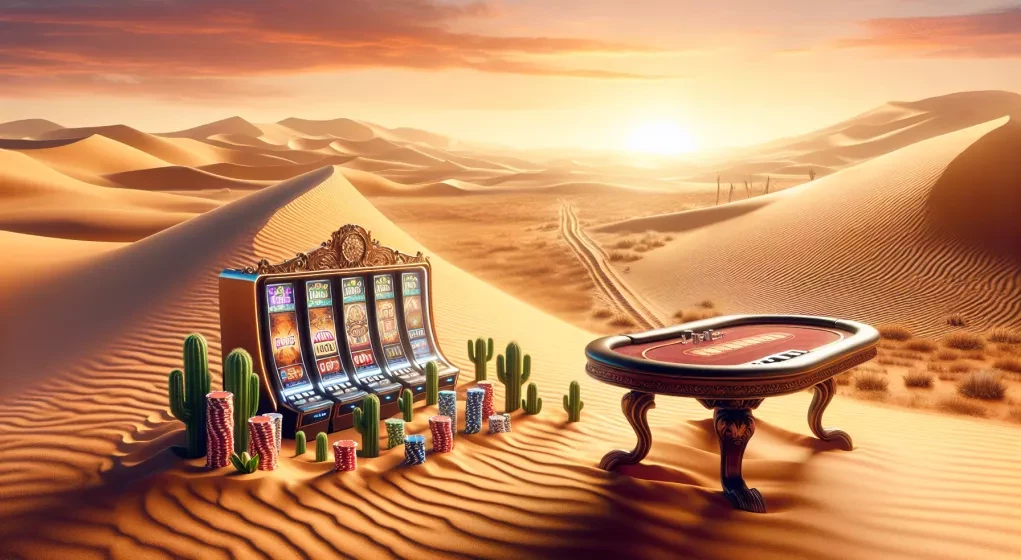Amidst the glittering lights and the siren calls of slot machines, another bastion of Las Vegas gaming culture is about to shutter its doors. The Sahara, an iconic name on the fabled Strip, will cease the clattering chips of its poker room come November 16th. This space, once resonant with the tension of bluff and the triumph of the winning hand, will give way to the jingle-jangle of more slot machines, much to the chagrin of players who have called it home.
Paul Hobson, General Manager of the Sahara, unveiled plans for an ambitious new venture, stating that, “When it debuts in mid-December, the enhanced offerings will include dedicated slot banks where players can be some of the first in Las Vegas to play the newest test games from top gaming content providers.” Such innovation comes at a cost — the casualty being the adrenaline-fueled game of poker.
Fractured by fate, the original poker room of the Sahara has seen its share of closures, the first in April 2011. The subsequent proprietors, SLS, eschewed poker entirely in their 2014 renovation, leaving a hiatus that lasted until the return of the Sahara name and the heralded opening of a fresh poker enclave in February 2020.
Yet, a larger trend looms large over the city of neon dreams, a specter that has claimed six Strip poker rooms in the past five years alone. The roster of closures reads like a eulogy to a bygone era — the Excalibur, the Tropicana, the Mirage, Harrah’s, Planet Hollywood, and the Flamingo, each a tale of transformation from the tactile world of poker to the machine-led future of slots.
For the Sahara, the choice was made clear — the analog complexity of poker, where the house merely scrapes a modest rake off the top, paled in comparison to the lucrative lure of machines. Every square foot must prove its worth in a city built on odds and the Sahara’s poker room, no matter how bustling, fell short in the unforgiving economics of the gaming floor.
The metamorphosis isn’t confined to the felt tables. Buffets, once the bastion of the Vegas value meal, are succumbing to a similar fate. In their place rise the modern food halls, exuding a blend of gastronomy and profit margins. This renaissance of consumption mimics the poker room’s predicament, where inefficiency has seen traditional spaces repurposed for tomorrow’s promise.
The rise and fall of poker rooms serve as more than just a turnover of entertainment offerings — they reflect a strategic redirection of flow within the casino ecosystem. Each minute spent at the poker table subtracts from the potential gains of the slots. By the time players emerge, often weary and lighter in pocket, their appetite for further gambling may have dimmed.
This evolution of taste and business saw the Venetian repositioning its poker room to a less conspicuous corner, a harbinger for what some fear may be a Strip-wide retreat from the poker table.
Hushed whispers within industry circles suggest that even the hallowed halls of Caesars Palace could soon echo the Sahara’s tale. As the fourth Caesars Entertainment property poised to potentially part ways with poker, one cannot help but recall that it has persisted with such a space since its inception in August 1966. Yet, the promised return of its poker room remains an unanswered question, lost in the transition to additional slot machine acreage.
In the interim, the vibrant tapestry of Las Vegas’ gaming culture continues to shift and reshape, responding to the inexorable demands of profit and evolving player tendencies. The entryways to the poker rooms, once portals to tense duels of skill and fortune, gradually seal shut, ushering in a new era where the one-armed bandits reign supreme and the whispers of ghosts echo in the corridors where poker legends once played.






